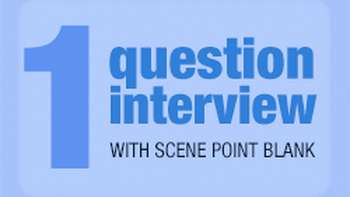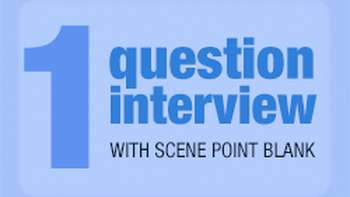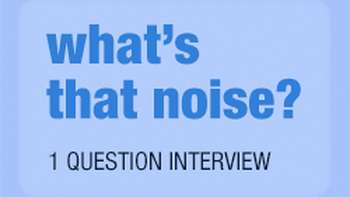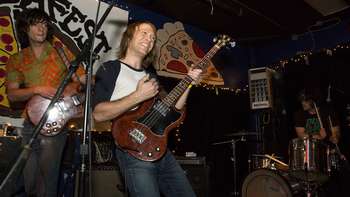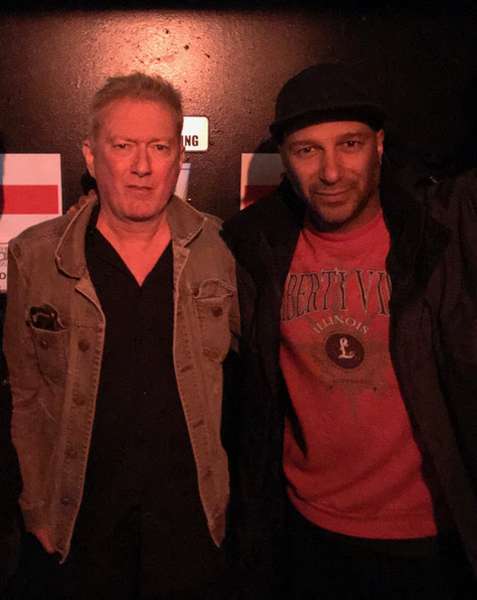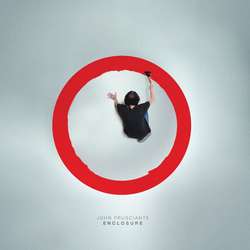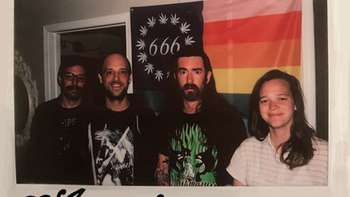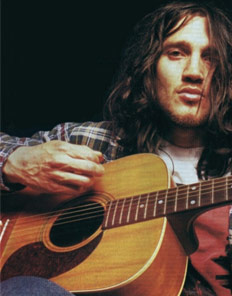
My Radio's My Heart--- A Conversation With John Frusciante
EC: Congratulations on your new release, 'Shadows Collide With People'---the press I've seen has been fantastic. 3 stars from Rolling Stone, a rave from the London Times. Are you psyched?
JF: Those things are all well & good but for me I was psyched at the end of making the record.
EC: It's a thing of the past?
JF: It's already behind me now. It's always nice to be appreciated, but onward & upward. I'm more concerned with going forward & doing new things.
EC: Great, that's what I want to talk to you about. Where you are now?
JF: Yeah I'm proud of the record I'm glad that people like it. But I am very much in the state of mind of doing new things. But I have been avoiding talking about what I'm doing now because it's frustrating for people to hear about things that aren't available yet. So it's better for me just to talk about the album that exists now, and it's an album I'm really proud of.
EC: As a longtime fan I'm really happy with it as well; it's sitting well with me personally. I just wanted to share that the first time I saw you was in
'89, we were both 19. You've certainly come a long way since then. I was wondering if you could talk about your work with Brian Eno (legendary Talking Heads/U2 producer) at all?
JF: He came to one of our shows in England with his kid and I was really excited to meet him because he's been a hero of mine since I was a little kid. And he invited me over to his studio and we spent a day just listening to records and stuff and taking a walk and we ended up recording some stuff mainly because he wanted to show me a sort of a set-up he had for processing the guitar. And to demonstrate it we recorded me soloing on the guitar. So I recorded some guitar soloing and he ended up building a song around it. And it came out really good; I really liked the song he did. He's going to release the song. I've been really focused on the modular synthesizer in the last couple of years & he gave me some interesting tips on that whole world. Just ways of doing things that you wouldn't think of doing because they're technically wrong. Basically just using it in an unorthodox way. Actually that one day that we spent together really ended up having a big influence on the direction I've gone in musically since then?
EC: Yeah that's why I asked the question. I would imagine that it really lit afire for
you. I would see kindred spirits getting together and you really taking something away from that.
JF: Yeah I did. My music, my whole approach to the synthesizer has completely changed now. I don't really use it anymore for the oscillator or tone generator. It means basically I'm using the synthesizer more to change the sounds of other things rather than to use it as the source of the sound. Basically I'm using it in a much more subtle way. You could listen to a recording and you could think it was a recording from the 60's because the things with the synthesizer are so subtle they end up making things they end up making the basic timbre of the various musical elements you can tell something different is going on but you can't tell what it is that's making it sound strange. I'm going in that direction rather than the 80's synth-pop direction where it's more obvious you're hearing a synthesizer.
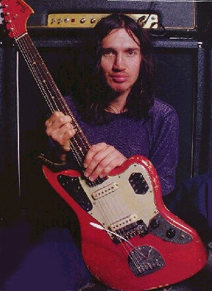 EC: In your live shows, in addition to playing your originals, you cover an interesting array of great bands & songwriters from the past such as Joy Division, Radiohead, Nirvana, Fleetwood Mac, Elton John & REM. I've also seen it written that your recent influences include Depeche Mode, Kraftwerk, Human League & other famous synth- driven bands? Talk about how that influence happened for you? Did you seek out this music or did someone introduce you to it?
EC: In your live shows, in addition to playing your originals, you cover an interesting array of great bands & songwriters from the past such as Joy Division, Radiohead, Nirvana, Fleetwood Mac, Elton John & REM. I've also seen it written that your recent influences include Depeche Mode, Kraftwerk, Human League & other famous synth- driven bands? Talk about how that influence happened for you? Did you seek out this music or did someone introduce you to it?
JF: That was stuff I was listening to a lot while we were making Californication & while we were writing By The Way, but for this last year and a half it's been more really experimental electronic music and British folk rock and Velvet Underground & Talking Heads.
EC: Of course, some of your staples, right?
JF: I've been going back to something like Velvet Underground, I listened to it so much all through my 20's basically. For a couple of years I didn't
listen to it as much. Right now my taste is going more for things that are organic where the people are using all the sonic possibilities in interesting ways. Where people are pushing the boundaries of what you can do with texture of music but not doing it with a synthesizer which is such an easy sort of route to do it with. I'm also very impressed with the best people in experimental electronic world, like Peta and Eckart Aillers and Finez and Jim O'Rourke and Oren Umbarci and Francesco Lopez. Most of them use the computer as their main instrument.
EC: I only know the most obvious and acclaimed of the bunch which is Jim O'Rourke and he's fantastic. Would you be open to working with him?
JF: Yeah, of course I would. He's playing in'In April I'm going with Vincent Gallo because we're performing on the Sonic Youth day of All Tomorrow's Parties. He's playing another show at Royal Albert Hall with Jim and Steve from Sonic Youth are his backing band, and I might play mellotron on a song. So I will be working with him if I do that. I think he's one of the best producers. I think Jim O'Rourke he does everything so well---he's such a great guitar player, he does folk-type things really well and the electronic stuff, the noisy stuff and he's just a master.
EC: Yeah I know, 'Halfway to a Threeway' was mind-blowing for most of us.
JF: Yeah, it's great.
EC: In a way that a lot of your stuff has been. I'm going to change gears & talk about your new record a little bit. 'Time Goes Back' 'Every Person' and 'In Relief' are three of my current favorites from your new cd. They're just gorgeous. They seem very personal and at the same time speak to the universal experience of simply being a human. Can you reflect upon your songwriting muse, where it comes from and what your intentions as an artist are?
JF: That's kind of a few questions in one.
EC: Those songs touch my heart. They're very immediate. I have a very visceral reaction when I listen to 'Time Goes Back' I think about my relationships to people. They're abstract, they're sort of like abstract paintings, but they say very specific things about being a human and feeling your feelings. There's something really nice about them; you're doing something very original and I want to congratulate you for that.
JF: Thanks. I think the feelings in my music were suggested to me before I even had the ability to play music. And this whole period of time of gradually working at being a better guitar player and songwriter have gradually led me to the point where I feel I'm doing a clearer representation of the thing that I've been feeling inside me since I was four years old. It's something that I definitely don't feel responsible for that feeling that's there. I realize that it's me but I always think of it as me combined with all these other energies that've been carrying me since I was a little kid. I would say a lot of the emotion in what I do is a sort of a thankfulness for those energies being around, because there's been points in my life when they weren't around, and it's a real sort of miserable existence. So when I feel the spirit upon me it's something I don't take it for granted, and I don't think I'm solely responsible for these things.
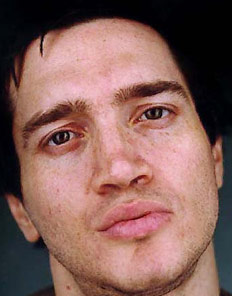 EC: There's a Northern California poet Robert Hass who has a poem called 'Privilege of Being' and that kind of speaks to that, that we're lucky to be here at all.
EC: There's a Northern California poet Robert Hass who has a poem called 'Privilege of Being' and that kind of speaks to that, that we're lucky to be here at all.
JF: Yeah, I really like being alive. But I definitely don't have any intentions as an artist. I write songs because I have to write them, and if I didn't I'd be doing some other kind of music that didn't require a song. It's just something that I have to do, and I'm at the point now where I'm just doing it and it's not something that I feel like anymore that I'm doing it because I'm told to do it. I just feel like the songs that come out are the songs that come.
EC: Keith Richards used the metaphor of just sticking his creative antennae up & seeing what sticks to them. Would you say the process is similar for you?
JF: Yeah see what's out there & if something's out there it starts coming through you & you just sit there and try to be disciplined about it and take it to its state of completion. Or nothing comes of it and you just do something else.
EC: Where do you see your music fitting into the landscape of the current rock scene, or is that not your intention with your solo work, particularly? Are you looking for mainstream airplay?
JF: I don't want to fit into it at all. I don't want to be on the radio. I don't want to be on Mtv. I feel like I'd like to continue putting out records and start putting them out more rapidly than I have until now and for me if I can keep selling the records to the fans that already like me that's fine. And if a few other people come along who discover my music because they in some natural way come across my music, cool. I'm not interested in forcing my music on people, and that's what the whole music industry nowadays is based on is forcing stations to play it, forcing people to listen to it. In the Chili Peppers I'm a part of that world in a pretty big world and that's just the way it is. I don't let it affect the music I write for the Chili Peppers. I try to put the same spirit into that that I put into any other music endeavor I'm involved in. As far as my solo record, I don't want a gold record or anything, I'm happy to be small and to have the people appreciate the music who really like me for being me.
EC: Is it true you already have another new cd's worth of material ready to go that you recorded with Fugazi bassist Joe Lally? Can you talk about that now or is that supposed to be a secret?
JF: It's two cds, it's all finished & ready to go.
EC: What's the name of the band?
JF: Attaxia.
EC: Can you dispel the myth of the self-destructive artist/musician for us, please. Do you think the music business tends to attract more than its fair share of people prone to excess than other businesses? Put another way, which comes first, creativity or madness?
JF: I think you get people taking things to excess in all fields, doctors, lawyers---it happens to all kinds of people. In music you have people exposing this very vulnerable part of themselves, and you also have the lifestyle is so fast that oftentimes people search for whatever the easiest way to feel relaxed in the midst of all of it, or the easiest way to have energy. And so you end up taking drugs to sort of balance yourself out. But I think I know just as many creative people who've never taken drugs in their life as I do who have taken a lot of drugs. I don't really think it means one thing or another.
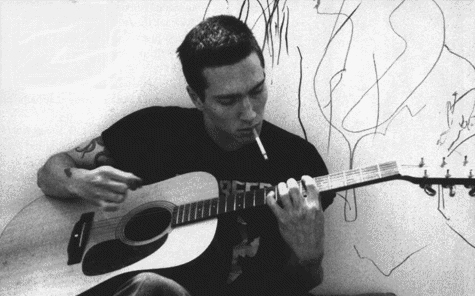
EC: Let's talk about your sobriety. Is there anything you'd like to share about this lifestyle change?
JF: No. (laughs)
EC: Ok. Fair enough. There's an old saying 'Experience is the only teacher.' What has your experience taught you, John?
JF: Are you talking about drugs specifically?
EC: Well, no not specifically. Experience is the only teachers. Some of us learned some hard lessons with drugs out there.
JF: The main thing experience has taught me is that one has to sort of hone their relationship to time, you know. Because time has a way of running off and not taking you with it. And for me the only way to live life is to grab the bull by the horns and call up recording studios and set dates to go in recording studios. To try and accomplish something. To do the various things in life I want to do. For me, that's the fruit of what I've learned. I'm going through a phase where I'm really accomplishing a lot of things and in that is everything I've learned. There were years where I didn't do anything and at the time I felt that's what I needed to do. But had I had a well- balanced relationship with time in my youth, I wouldn't have to have gone through that. For me it's important to be in balance. To not let fear get in the way of things, to not worry so much about protecting yourself all the time. Things like this can be your worst enemy. Something like trying to protect yourself all the time, things like trying to outwit fate. Those things can be the worst thing you can do for yourself. I find that the best way to do things is to constantly move forward and to never doubt anything and keep moving forward , if you make a mistake say you made a mistake. You say 'That's my mistake, that's me, that's what I am, I made that mistake.' You can't make a mistake and look back & say oh god why did that happen I wish I could change that. Making mistakes doesn't slow you down at all, making mistakes is part of living and you can look back & learn from them. That's something that took a while for me to learn that,but once I did learn that my life start speeding up rapidly & at this point it feels like everything's going so fast that I can't imagine looking back for a second.
EC: Yeah, we're perfectly imperfect & it seems like you've done a lot of growing and you're grounded & you know exactly what you're doing.
EC: I've heard it said that 'Life is a beautiful mess.' Would you agree?
JF: Yeah, if you want to look at it that way. For me I think everything is very much perfect. There was a time when I looked at everything & I thought it was a mess & I didn't think it was so beautiful, but now I think it's very beautiful & very orderly. To me there's a perfect balance of things like pleasure & pain, & sadness & happiness. Everything's very perfectly balanced; for all the horrible things in the world there's lots of good things. I don't see how people can expect that there should be more good things or more happiness, for the people who want sadness there's sadness, for the people who want happiness, there's happiness. There seems to be a sense to everything. But when I thought everything was a chaotic mess, everything seemed really ugly to me as well, but I'm glad that I don't see it that way anymore.
EC: I've also heard it said 'Life is the journey to the self.' This is sort of the biggest question, what is the function of life? Have you studied Buddhism? You know, we're not here just to be happy; life is the journey to the self---and where are you in that? In the Buddhist sense that we all have God in us.
JF: There have been points in my life when I saw clearly that everything in the world & everything in the universe is all inside of me in really precise detail. The whole world is inside of everybody, and the whole universe is inside the whole world & things like that. I haven't really taken these sorts of things very seriously in the last two years because it's been so clear to me what I'm supposed to do. So I just wake up & do whatever those things are. I take the responsibility of being me very seriously, and I feel like I have to spend my life the way I know is the wisest way to spend it & I don't really feel any kind of a void in myself where I feel like I need to use something like religion or spiritual matters to sort of fill up or to get me on a good path. I love all those things because it's great when people do feel those things inside them & they can go do those things. But for me if I'm gonna read about something I'd rather read a pamphlet or the instructions to a synthesizer than a book on Buddhism.
EC: OK. What's the single most, or what are a couple of important relationships that've been in your life & where you are currently?
JF: For me my friendship with Omar Rodriguez from Mars Volta that friendship really means a lot to me because he's another creative person who works as hard as I do. He really pushes himself & the people around him to be the best they can be. Anybody who's a guitar player that's spent that time with another guitar player, there's nothing better than that. It means so much to me to have a friend like that. I feel the same way about Josh Klinghoffer, the guy who plays on my record. He just inspires me a great deal & his ideas are things I wouldn't have thought of & also the times that we've spent together. I could talk about people from the past but for me it's more important to really appreciate the people who are around now, because of having friends die... To really appreciate the friends you have when they're around because this is your time to be with them.
EC: Yeah, I've heard it said that we only get to be here for a short period of time, and I've seen that played out in my life, and with friends as well.
JF: You just never know when somebody's gonna die. It could happen at any moment so you've got to really treat everybody that way. Just really let everybody know how you feel about them.
EC: Yeah, it's funny. The first time I heard the expression that we're spiritual beings having a human experience I sort of braced at it, but over time I've warmed to that idea. Not in the Sting(K) sense, that we're 'spirits in the material world.' Thank you for your time. This has been a pleasure.
JF: Cool, thanks man. It was nice talking to you.
EC: Be well.
Links: http://www.johnfrusciante.com
Interview: Evan C Chase
